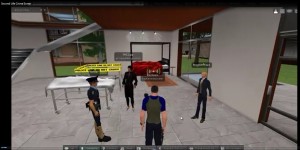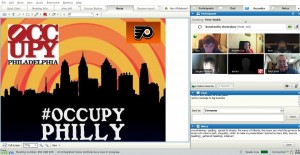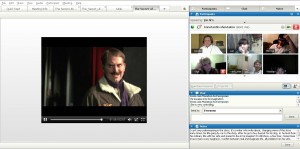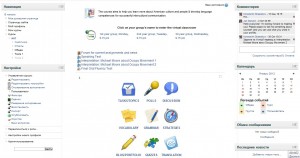As a Language and Culture Learner, How Have You Grown?
How have you grown as a student of language and culture in the last fifteen weeks?
Please write your reflections as a comment to this blogpost.
Think about how much speaking and listening practice you have had in our online sessions. How has this affected your comfort in speaking English and understanding native speakers? What can you do now that you couldn't do at the beginning of the class?
Consider the cultural topics we worked with during the semester: humor (New Yorker cartoons; Exporting Raymond and the other TV shows we looked at), American digital news resources and the Occupy Wall Street movement (Michael Moore, Occupy Louisville interviews, photos, videos and texts), Literature (The Story of An Hour, The Secret Life of Walter Mitty, She Can Kill With a Smile, others....). Which did you enjoy the most? Which did you learn the most from? Be as specific as you can.
Summarize your progress toward goals for this semester’s language and culture learning experience. Did you learn what you were hoping to learn? Did you develop skills you were hoping to gain? Did you push yourself to learn and learn-to-learn in ways that were unexpected to you?
How do you plan to continue contact with the language and culture you are studying in the future, when the semester is finished?
As you write, think about what kind of advice you might offer another student, new to the translators’ program. If you got a do-over, how would you approach it differently? What have you learned about how you work?
This is about putting it all together, as a way to make sense (or meaning) of the whole experience.
I hope that one thing you take away from your semester in America and Americans Today is an appreciation of your ability to sift and sort through an incredible amount of data and come out with a holistic view of the process and how you make it work for you.
“It’s not what you look at that matters. It’s what you see.”
–Henry David Thoreau
Designing Text-Based Tasks
While designing a task based on a text, the teacher should aim at encouraging natural and efficient reading/listening/viewing strategies, focusing initially on searching for sufficient relevant meaning for the purpose of the task.
I've been reading a book that gives some great advice on designing different tasks (incliding those based on texts). The book is called A Framework For Task-Based Learning by J.Willis. I decided to make some slides based on the information from the book and share it with everyone who is interested in designing meaningful tasks. I hope you'll enjoy it.
The 10 Characteristics of Authentic Tasks
1. Authentic tasks have real-world relevance.
2. Authentic tasks are ill-defined, requiring students to define the tasks and sub-tasks needed to complete the activity.
3. Authentic tasks comprise complex activities to be investigated by students over a sustained period of time.
4. Authentic tasks provide the opportunity for students to examine the task from different perspectives, using a variety of resources.
5. Authentic tasks provide the opportunity to collaborate.
6. Authentic tasks provide the opportunity to reflect and involve students’ beliefs and values.
7. Authentic tasks are integrated and applied across different subject areas and extend beyond domainspecific
8. Authentic tasks are seamlessly integrated with assessment.
9. Authentic tasks yield polished products valuable in their own right rather than as preparation for something else.
10. Authentic tasks allow competing solutions and diversity of outcomes.








